The Chinese Medical Ministries of Kang Cheng and Shi Meiyu, 18721937
The Chinese Medical Ministries of Kang Cheng and Shi Meiyu, 18721937
On a Cross-Cultural Frontier of Gender, Race, and Nation
Connie A. Shemo
LEHIGH UNIVERSITY PRESS
Bethlehem
Published by Lehigh University Press
Co-published with The Rowman & Littlefield Publishing Group, Inc.
4501 Forbes Boulevard, Suite 200, Lanham, Maryland 20706
www.rowmanlittlefield.com
Estover Road, Plymouth PL6 7PY, United Kingdom
Copyright 2011 by Connie A. Shemo
All rights reserved . No part of this book may be reproduced in any form or by any electronic or mechanical means, including information storage and retrieval systems, without written permission from the publisher, except by a reviewer who may quote passages in a review.
British Library Cataloguing in Publication Information Available
Library of Congress Cataloging-in-Publication Data
Shemo, Connie Anne.
The Chinese medical ministries of Kang Cheng and Shi Meiyu, 18721937 : on a cross-cultural frontier of gender, race, and nation / Connie A. Shemo.
p. cm.
Includes bibliographical references and index.
ISBN 978-1-61146-085-8 (cloth : alk. paper) ISBN 978-1-61146-086-5 (electronic)
1. Kang, Cheng, 18731931. 2. Shi, Meiyu, 18731953. 3. Missions, MedicalChinaHistory19th century. 4. Women physiciansChinaBiography. 5. WomenPolitical activityChinaHistory19th century. I. Title.
R722.3S54 2011
362.1092520951222dc23
[B]
2011023198
 The paper used in this publication meets the minimum requirements of American
The paper used in this publication meets the minimum requirements of American
National Standard for Information SciencesPermanence of Paper for Printed Library
Materials, ANSI/NISO Z39.48-1992.
Printed in the United States of America
In memory of my grandmother and grandfather,
Alice Anne Morrissey Shemo and Dominick James Shemo
Acknowledgments
In my first year of graduate school at SUNY-Binghamton, I was looking for a topic that could encompass the history of women in both China and the United States. My new advisor, Kitty Sklar, suggested that I read Jane Hunters Gospel of Gentility , where I first encountered the subjects of this book, Kang Cheng and Shi Meiyu (a.k.a. Drs. Ida Kahn and Mary Stone). As I visited archives, to my great excitement, I found more and more on Kang and Shi, and eventually decided to write a monograph focusing entirely on their medical ministries. I owe a special debt of gratitude to Kitty for her enthusiasm and encouragement as this project took shape.
John Chaffee has also been involved in this project from its inception, directing my study of Chinese history, encouraging me in my study of the Chinese language, and patiently guiding me in my translations of Chinese sources. Other faculty and students at SUNY-Binghamton offered helpful assistance in this project, including Fa-ti Fan, Nayan Shah, Tom Dublin, and Sarah Elbert. Chen Zu-yan spent a great deal of time helping me with my classical Chinese. My fellow graduate students Michelle Kuhl, Carol Faulkner, Brenda Myers, Sarah Boyle, Surronda Gonzalez, Laura Murphy, and Anne Derousie gave me valuable feedback. Barbara Reeves-Ellington has read almost every part of this book, offering crucial critiques, support, and encouragement.
This book has benefited from the feedback of numerous scholars who have taken the time to read sections and offer comments, or discuss the project with me as I turned the dissertation into a book. Jane Hunter, Tani Barlow, Daniel Bays, Jessie Lutz, Carol Harmin, Frank Costigliola, Dana Robert, Jay Sexton, Ian Tyrrell, Rui Kohiyama, Noriko Ishii, Hsiu-yun Wang have all read papers or attended presentations of papers that later became part of this book, asking important questions and offering new perspectives. Hsiu-yun also generously shared yearbooks from Bethel Nursing School with me. During the three years I spent as a lecturer at Princeton University, conversations with Susan Naquin, Joan Judge, Hu Ying, Daniel Bender, and Leah Hagedorn were helpful in bringing out the central themes of this book. Ruth Rogaski read my entire dissertation and offered important insights on the process of turning a dissertation into a readable book. Paul Kramer and Ann Braude were the readers for an essay on Kang Cheng and Gerturde Howe in a volume that I co-edited, Competing Kingdoms: Women, Mission, Nation and the American Protestant Empire , and their comments and suggestions enriched this book as a whole.
My colleagues at SUNY-Plattsburgh have been important sources of support as I have finished this book. The support of the SUNY-Plattsburgh history department was of great value to me as I completed this project. A semester at the Ethics Institute and the discussion groups run by Tom Moran and Doug Skopp, provided both time to work on this book and stimulating conversation about issues discussed in the book. My unending gratitude to my research group, composed of Jessamyn Neuhaus, Connie Oxford, Lauren Eastwood, Monica Ciobanu, and Elizabeth Ketner, who have read almost every part of this book, and to Jeff Hornibrook for his feedback on some of the chapters.
This book could not have been written without the archivists who took such time and care to help me find the materials that made Kang Cheng and Shi Meiyu come to life for me. Thomas Rosenbaum and Monica Blank of the Rockefeller Archives Center, Dr. Steven Peitzman and Barbara Williams of the Special Collections and Archives on Women and Medicine of the Medical College of Pennsylvania, Joan Duffy of Special Collections at the Yale Divinity School Library, Mary Osielski of the Department of Special Collections and Archives at the State University of New York at Albany, and archivists at the Sophia Smith Collection at Smith College all provided invaluable assistance. Thank you to Amy Fitch for some last-minute help with citations. I am especially grateful to Mark Shenise at the United Methodist Archives, who has responded to countless e-mails, generously taken the time to research answers to questions about Methodist missionaries over the years, and pointed me to collections that made the writing of this book possible.
The funding of various organizations made the trips to these archives possible. The Rockefeller Archives Center provided me with a research grant, and the Special Collections and Archives on Women and Medicine awarded me the Louise Glockner fellowship which gave me six weeks in that archive. Faculty grants at Princeton University and SUNY-Plattsburgh provided the funds to do some final research.
I was also very fortunate in meeting people who knew Kang Cheng and Shi Meiyu personally who were kind enough to discuss their memories with me. Betty Hu, an adopted daughter of Shi Meiyu and Jennie Hughes and former president of Bethel Mission, answered questions about Shi Meiyu by mail, despite her health problems. Hester Brown Hill, the daughter of missionaries who had worked with both Shi Meiyu and Kang Cheng, and whose mother was particularly close to Kang, allowed me to interview her and graciously hosted me in her home while sharing her recollections of Kang Cheng and of her life in the missionary community of Nanchang. Ruth Soong, a member of Bethel Mission who had met Shi Meiyu, gave me a sense of how Bethel had evolved after Shis death, and generously sent me materials on Shi Meiyu and Jennie Hughes that were in her possession. Jack and Doris Tsu were wonderful hosts for an entire weekend in California while sharing their memories of Shi Meiyu and Jennie Hughes. Doris Tsu also told me about a great niece of Shi Meiyus, Phoebe Sorkan, who gave me a phone interview and corresponded with me by mail, providing me with a firsthand account of the relationship between her great-aunt and Jennie Hughes.

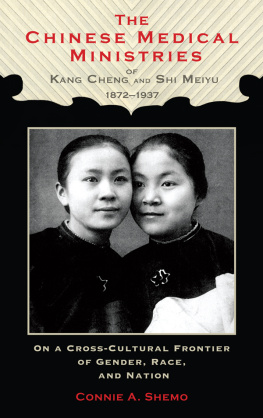
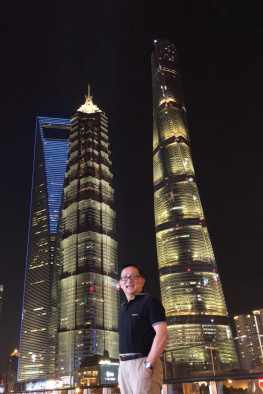

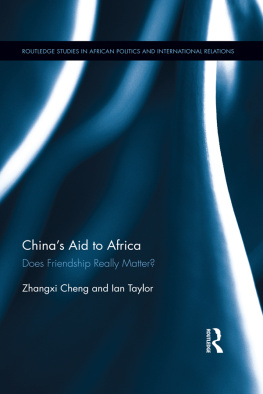
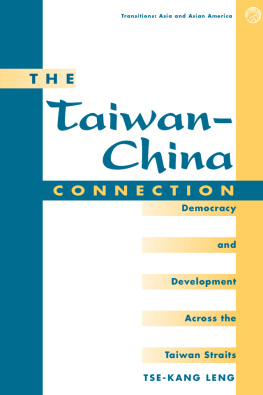
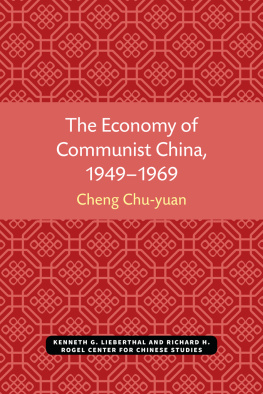
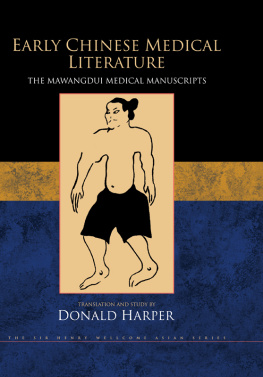
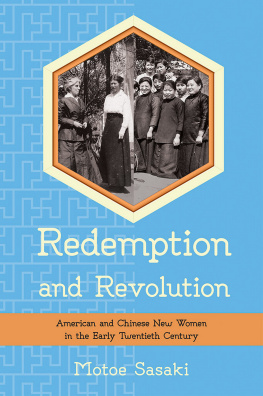
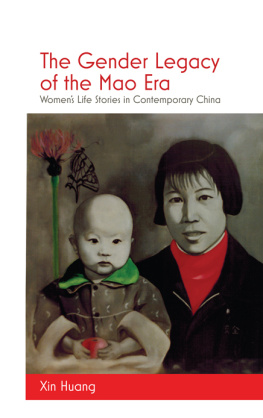
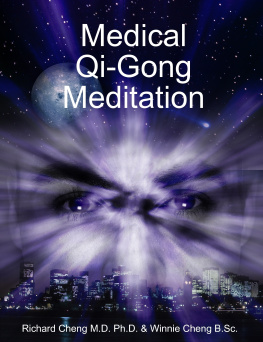
 The paper used in this publication meets the minimum requirements of American
The paper used in this publication meets the minimum requirements of American